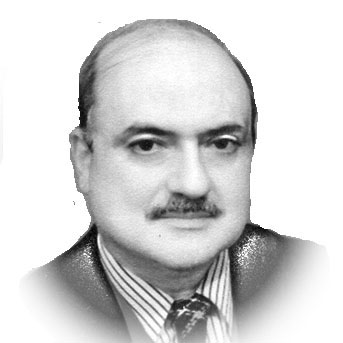Khalid Saleem
NOW that the Corona-virus Pandemic has turned the world as we know it upside down. A couple of news items related to public health appearing in the media some years back deserve serious attention. The first, datelined Seoul, quoted an international vaccine expert as warning that “it’s only a matter of time before a deadly flu pandemic strikes”, adding that the world was ill-prepared to cope with a major outbreak of the disease. “We are talking about a killer influenza that would kill probably tens of millions of people,” stated Mr. John Clemens, director of the International Vaccine institute, “We are not talking about if; we are talking about when.” The second and earlier item was about AIDS and its devastating impact on health in the continent of Africa. The Kenyan lady minister, winner of the Nobel peace prize 2004, was quoted as having expressed the view that the AIDS virus is not a natural phenomenon but is man-made. She also implied that the spreading of the virus over vast areas of the African continent, too, was a deliberate act (accident/conspiracy?).
The aforementioned two items provide serious food for thought. For one thing, they serve to shake one’s confidence in the role of the modern medical research establishment. For another, they serve to add fuel to the already boiling conspiracy theory cauldron related to the Pandemic. Together they should be enough to spread panic in an already jittery world community. Some pertinent questions, thereby, crop up, begging for answers. Among them are: a) Have our overall priorities undergone a drastic change to the detriment of the interests of mankind? b) Is it logical to assume that the dedication that once characterized medical research is now a thing of the past? c) Is modern medical research today controlled by expediency rather than ethics and is in conflict with nature?
History of medical research, one finds, tells a different and touching story. The perspicacious reader may be interested in the following item reproduced by the International Herald Tribune from its pages circa June 1899: “The Liverpool School for Tropical Diseases has decided to dispatch to the West Coast of Africa a special expedition for the purpose of investigating the causes of malaria. The expedition will be headed by Major Ross and will start for Sierra-Leone early in August, when the malaria season is at its height and the conditions are most favorable for research. Major Ross hopes to prove his theory that malaria is caused by the bites of a mosquito.”
The reader will undoubtedly have noted the profoundly touching sense of dedication shown by researchers of the likes of the said Major Ross. These pioneers surmounted fearful odds in their endeavors to discover the healing touch for humanity’s ailments. Humanity benefited enormously from the hard work put in by such dedicated individuals. Regrettably, today the world has acquired a mercenary hue. The expedition of the aforementioned Major Ross and his dedicated team is a case in point. He and his team had a theory that they were determined to put to test despite fearful odds. Journeying to Africa at the height of the malaria season could hardly have been a picnic. It was this pioneering spirit that set in motion the process that led to the cure and eventually the extermination of this deadly disease at its source. Over the years, medical research took enormous strides. Several ailments, many of them theretofore considered incurable, were successfully treated thanks to the selfless efforts of countless researchers who dedicated their lives to their work in the interest of humanity.
Public memory is proverbially short. How many people even recall the time when such ailments as pneumonia were considered incurable and fatal? And yet today hardly anyone gives a second thought to such ailments. Nonetheless, it would be imprudent to forget that it is nature that guides man’s efforts. Cures to all man’s ailments are to be found in nature. They are just waiting to be discovered. It is no coincidence that that all medicines were originally discovered in natural form usually in the flora and fauna. It was only after discovery in nature that various drugs were synthesized for mass production. Nature, incidentally, has prescribed a certain regime for each species to be safe from disease. Out of all species, it is man alone who violates the regime prescribed by nature. As a result, humankind pays a terrible price. Each succeeding generation is prone to newer and newer ailments, not a few of them man-made. Someday when research is complete into the origins of some of the new scourges targeting mankind, it might well emerge that they are a direct consequence of man’s ill-advised efforts to tamper with the laws of nature. Nature does not take kindly to such indiscretions.
While on this subject, one must take note of the rather intriguing fact that, despite the giant strides taken by the medical profession in the field of curative medicine, the cure for the common cold still continues to elude them. It would appear that the common cold is the symbol of the resolve of nature to stay a step ahead of man. One thing that the common cold should teach one and all is respect for the underdog. Just because it happens to be a minor and “common” ailment does not mean that one can either ignore it or, for that matter, take it for granted. Small things demand and deserve respect. Refuse to give due deference and you do so at your own peril. Coming back to the warnings of the shape of things to come, humankind would be well advised to re-order its priorities in order to cope. Unless this is done, the future prospects do not look particularly bright.
— The writer is a former Ambassador and former Assistant Secretary General of OIC.










